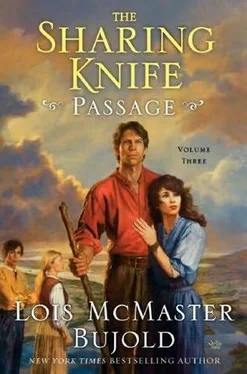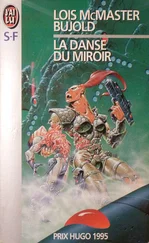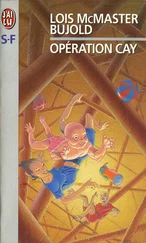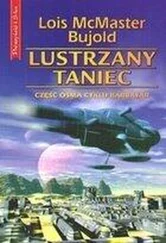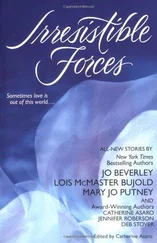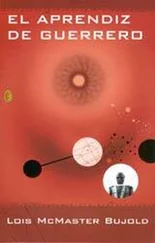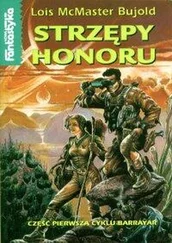Hod made a wary noise, and his hands twitched; Fawn caught one, to keep it at his side, and gave him a big happy reassuring smile. Whit bit his lip, possibly on a bark of laughter, but Hod offered a confused half-smile to Fawn in return, as who could help doing so? And made no further move to fight off Dag.
“Done,” Dag whispered at last, and sat up, folding his left arm inside his right. His exhausted ground projection petered out, as if his ghost hand were evaporating into mist, into nothing. Absent gods, I feel sick. His groundsense range seemed down to ten paces, or maybe ten inches. But at least he hadn’t groundlocked himself to the blighted worm. Count your blessings. One…
Next time, he would hold out for a medicine shop and some simple dose of vermifuge, a course of treatment he suspected even a Lakewalker medicine maker would prefer. Dag had a vague notion that senior makers saved their costly groundsetting skills for serious dangers, like tumors. More than ever, he regretted turning down Hoharie’s offer of real maker’s training; then he’d know what to do, instead of having to blunder around by guess. But Hoharie’d had no use for his farmer bride. Blood over the dam.
Tanner and Whit settled Hod for the night. Dag dragged his bedroll around to the other side of the fire, away from the sight of his unappetizing patient. Victim. Whatever. He would’ve liked to retreat farther than that, but hated to give up the heat. Hod, exhausted by the shock and limp from the passing of his pain, dropped to sleep fairly soon. Dag, equally exhausted, did not.
While Fawn, Tanner, and Whit went off to see to the horses, Mape came and squatted on his haunches beside Dag’s bedroll. After a while, he said, “I never guessed he was sick. Just thought he was lazy.”
“I didn’t catch on either, at first.” Dag had been led down a false trail by Tanner’s talk, yes, but he’d only to open his groundsense to learn better.
“I beat him, couple o’ times, when I caught him sleeping on the job,” Mape added. His voice was low, flat, expressionless. Suited for things confided in the dark, where no one could see. “I’m just sayin’. Thankee, Lakewalker.”
“The knee should be good with a couple of weeks of rest. The other, you’ll start to see a difference in a couple of days, I’m guessing.” Dag could leave it at that. It was tempting. Oh, blight it. “I was cleaning up my own mess. I saw him sneak out to my bags. Thought I’d just let Copperhead teach him a lesson. Instead, I got taught. Can’t say as I enjoyed it.”
“No,” agreed Mape. “Me neither.” He nodded, rose. Not friendly, exactly, but…acknowledging. That at least. He trod away into the dark.
When Fawn finally came to lie down, Dag tucked her into the curl of his body like one of the cloth-wrapped hot stones she sometimes used for pain. He held her hard. It helped.
In the morning, Hod was laid in his bedroll in the back of Mape’s wagon, and Whit took Hod’s place as brakeman. Fawn sat up beside Tanner. Dag, too, moved his bedroll, saddle, and bags to the back of the second wagon and continued his lie-down. Copperhead, unnaturally subdued, clopped loose behind, but Fawn supposed Dag had the gelding back under his mysterious groundsense-tie. Dag appeared to doze in the sun, but he was not asleep. It reminded Fawn uncomfortably of that deep, drained fatigue that had overcome him after Greenspring. The Glassforge teamsters seemed to think little of it, but Whit, familiar with Dag’s usual restless energy, cast more than a few concerned looks over his shoulder as they rumbled down the road.
Whit took over helping with Hod during their stops, at least. Hod still didn’t say much, but his gaze followed Dag around in something between worry and fascination. Tanner and Mape were kinder to him, which served only to confuse him, as though kindness were a baited trap into which he feared to fall.
Dag was quiet all day. They put up for the night in a barn let by a roadside farm to travelers and their beasts—no hotel, but warmer and more sheltered than last night’s uncomfortable sleep on the ground. The next morning, Fawn was relieved when Dag seemed enough himself to climb back up on Copperhead for the last leg of the journey.
Noon found the teams plodding up a long slope along a wooded ridge. Dag edged Copperhead alongside the wagon, and said to Fawn, “Climb on.” He had that elusive smile he wore when he looked forward to surprising her, so she stood up, balanced herself, and swung her leg over behind Dag. When she’d adjusted to a secure perch, he let Copperhead roll out in his long patrol walk, and they pulled ahead as though the wagons had parked. At the top of the ridge, he let her slide down, and swung after her. Walking backward, he took her by the hand and brought her to the lip of the road.
The valley of the Grace spread out below them in the gold-blue autumn light. The river seemed to have put on her party dress, her banks and bending hillsides a swirl of color: scarlet and purple-red, glowing yellow, bright brown. The water reflected the azure of the sky, save where it broke into a sparkling shoal, necklace to the dress. Brooches of boats slid upon the water—a distant keel, a broad, blunt ferry—with a girdle of flatboats pulled up along the farther shore. Fawn was dimly aware of Whit, trotting up panting to see whatever there was to see. She was more aware of Dag, watching her face. She wasn’t sure if he was seeing just the river valley reflected there, or something more, but his mouth softened in an ease that handed her joy back to her, to be passed back to him again, redoubled.
“Oh,” said Whit, in a voice the like of which she’d never heard come out of him before. She glanced up, startled, to watch his lips part, his mouth grow round. Wonder, she thought, though you could well mistake it for a man punched in the stomach.
“Lookit those boats. Lookit…” he went on, though she was fairly sure he’d forgotten there was anyone listening. “That’s one big river. Even half dry, it’s bigger than any river I ever seen. It’s like a road. A great grand road, running from mystery above”—he turned with the river’s curve, like a man dancing, twirling with his lady—“into mystery below. It’s like, it’s like…it’s like the best road ever.” He blinked rapidly. His eyes were shining.
No, not shining. Wet.
Back aboard Copperhead, Dag rode close to the second wagon as they made the turn at the top of the ridge and started down the road into the valley. Fawn, beside Tanner, sat bolt upright and earnestly alert, ready to work the wheel-brake at the teamster’s word. In the front wagon, Whit had his head cranked sideways, goggling at the river. Dag’s eye followed his gaze.
Half a mile upstream on this side, Pearl Riffle Camp was just visible amongst the thinning leaves, a scattering of tent-roofs—Fawn would have called them cabins, Dag supposed—along the wooded hillside. Opposite the Lakewalker camp, below the mouth of a creek, lay Possum Landing, the level stretch of shore where the ferry put in and where cargoes were traditionally transferred from the old straight road to the river, or vice versa. There were more farmer houses clustered upslope from the landing than the last time Dag had ridden through here, and more sheds for storing goods.
Eight flatboats and a keel were presently tied to the trees along the muddy bank on that side, waiting for a rise in the water level to dare the shoals below; a good selection, though if the water rose suddenly from some big storm upriver, they could all be underway in an hour. But the water was still falling, judging from both the width of the mud margin and the fact that a couple of the flatboats, tied imprudently too close to the bank, now had their bows stuck in the drying mire. Even the wharf boat was half-grounded.
Читать дальше
